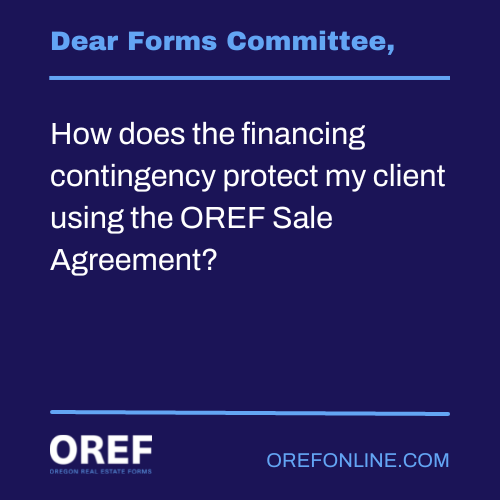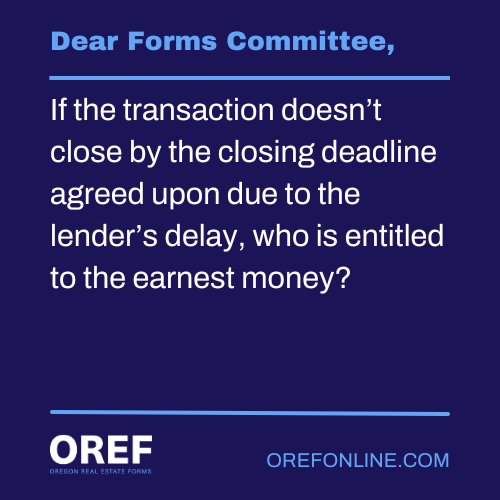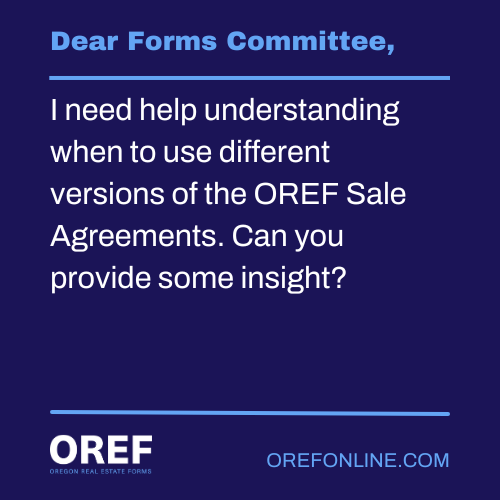Dear Forms Committee: How does the financing contingency protect my client using the OREF Sale Agreement?
Per Sections 5.1 and 5.2 of the OREF 001 – Residential Sale Agreement, the transaction is subject to the following: Buyer and property must qualify for the loan from the lender, the lender’s appraisal must not be less than the purchase price, and the buyer must actually obtain the loan from the lender (unless failure to obtain the loan is due to the fault of the buyer), along with any other additional provisions your buyer may need to add. This contingency remains in place all the way through the transaction until closing unless the buyer takes specific action to remove all or a portion of it.
If the buyer receives notice from the lender that the loan has been denied or cannot be obtained, the buyer must promptly notify the seller, which will then give the buyer a period of time to either terminate the transaction or renegotiate terms that would allow the transaction to proceed. If neither occurs, the transaction automatically terminates, and the buyer is entitled to a full refund of the earnest money. This time period is an opportunity for buyers and sellers who want the sale to continue to be able to explore alternative solutions. As an example, if the property does not appraise at or above the purchase price, the buyer and seller may want to renegotiate the price to allow the loan to proceed, or a buyer concerned that they may be overpaying for the property would have the right to terminate with a refund of the earnest money.
How does the financing contingency in the OREF Sale Agreement protect the buyer while still creating protection for the seller?
While this contingency is solely for the buyer’s benefit and runs until closing, protections are also included to protect the seller from a buyer not exerting the best effort to obtain the loan in a timely manner.
- The buyer must promptly notify the seller if the loan has been denied or otherwise cannot occur
- Contingency does not protect the buyer if the failure was due to the buyer’s actions
- The buyer has allowed the lender to provide non-confidential information about the progress of the loan to the seller
- The buyer must complete the loan application within a certain period of time
- There is a deadline for the buyer to order the appraisal
- The buyer will complete all paperwork requested by the lender
Always check with your principal broker or legal counsel to ensure that you are following any policy requirements of your brokerage.
All comments and responses from OREF or its staff, managers, and volunteers are non-legal opinions made for general purposes. Each Forms subscriber must rely solely upon their Principal broker or personal legal counsel for specific advice and instruction. You and your client should independently confirm that the Form(s) you use are legally suitable for the purposes intended and that they are current with respect to all laws and regulations.




